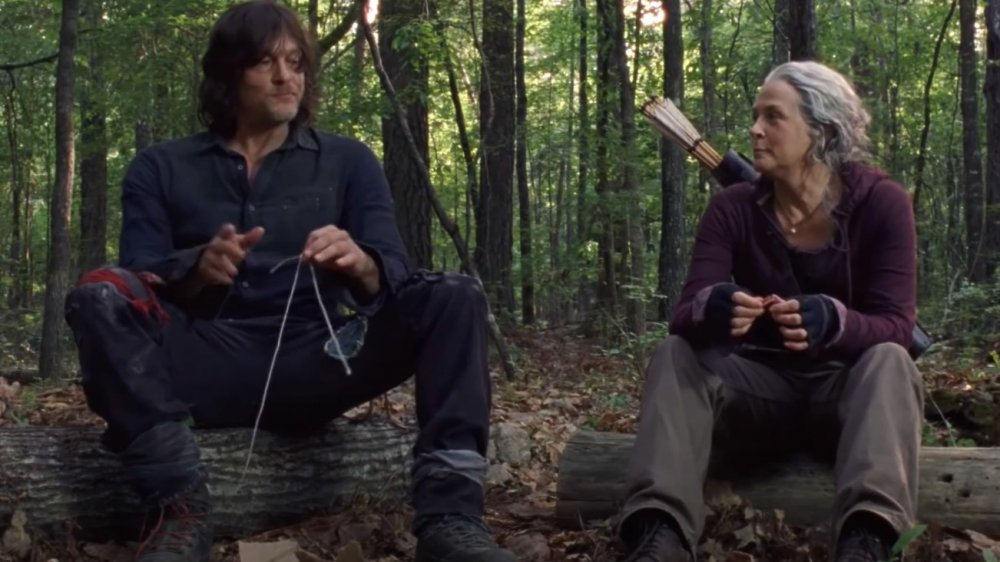Jaw-Dropping News Just Hit The Walking Dead
On September 9, 2020, fans of AMC's The Walking Dead received terrifying news. After over 150 episodes and more sadistic onscreen character deaths than you can shake a chain-wrapped baseball bat at, the flagship Walking Dead series is ending.
Several outlets, including Entertainment Weekly, confirmed that the forthcoming 11th season of the pop culture behemoth will be its last.
Scott Gimple, the chief creative officer of the entire Walking Dead franchise, explained in a statement that the end of the main series will spark the beginning of a slew of new Walking Dead content.
"It's been ten years gone by; what lies ahead are two more to come and stories and stories to tell beyond that. What's clear is that this show has been about the living, made by a passionate cast, team of writer/producers, producers, and crew, bringing to life the vision put forth by Robert Kirkman in his brilliant comic — and supported by the best fans in the world. We have a lot of thrilling story left to tell on TWD, and then, this end will be a beginning of more Walking Dead — brand-new stories and characters, familiar faces and places, new voices, and new mythologies," said Gimple. "This will be a grand finale that will lead to new premieres. Evolution is upon us. The Walking Dead lives."
These new series include the anthology Tales of the Walking Dead, which will be comprised of "individual episodes or arcs of episodes focused on new or existing characters, backstories or other stand-alone experiences," and a spin-off centered on Norman Reedus' Daryl Dixon and Melissa McBride's Carol Peletier.
The Walking Dead couldn't survive much longer, but the franchise will continue in other ways
There's no question that the cancellation of The Walking Dead represents the end of an era. Once, the show was a television juggernaut, setting records for cable viewership by drawing as many as 17 million viewers each night and daring the world to ask, "Are we really done with zombies by now?" But time catches up with everyone in the end ... even the shambling, flesh-starved, and decayed.
The truth is, while The Walking Dead was once a show that, as The New York Times has pointed out, found success across the cultural aisle in both big cities and rural areas, the series has lost some of its popularity steam in recent years. Compared to the 17.3 million viewers drawn to 2014's season 5 premiere, the 10th season opened to just four million — a series low, according to Forbes. The move to release The Walking Dead's final, extra-large season in two 12-episode segments across 2021 and 2022 appears to be an attempt to both see the series off and to milk a sensationalized finale for everything it's worth.
As previously mentioned, though, the shared universe itself isn't going to die off. There are plans to continue via Tales of the Walking Dead, the Daryl and Carol spin-off, the upcoming sequel show The Walking Dead: World Beyond, and the continuation of Fear the Walking Dead, plus more projects that fans just haven't heard about yet. These facts all combine to make the announcement of this particular ending a little less dramatic, but still, it's probably for the best that the original show doesn't drag its zombified limbs out too much longer.

